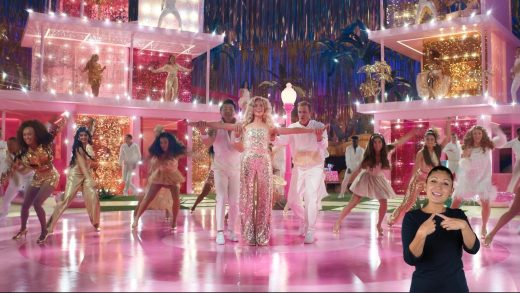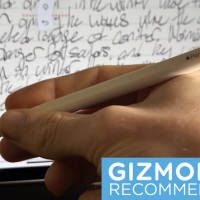Nuance is crucial for understanding book challenges, and because there’s a lack of nuanced discussion around the ways in which book challenges have appeared in the last year, it’s been easy for those seeking censorship to claim that in any and all cases of book-related discussions in public education and libraries.
Intent is key.
Take for example, Maus‘s removal from McMinn County Schools’s 8th grade curriculum. During the board meeting, it becomes clear pretty quickly that the book is not being targeted for being about the Holocaust. It’s instead being targeted for having crude language and images that several board members found disturbing (even when they admit to the Holocaust itself being disturbing). Digging into the board transcript, something interesting comes up: the copies that were being used in the curriculum were censored prior to students getting them. Profanity was erased. But that wasn’t enough for the board, who believed it to be too disturbing to remain in the curriculum and thus, it was pulled.
Indeed, the book isn’t inaccessible for students. It’s currently available at the McMinn Central High School library, and despite all of the claims that a ban on the book would create immense interest, as of writing, multiple copies of it are still on the library’s shelves. The book is not in schools where 8th graders use the school library, nor is it in classrooms. Despite not being pulled outright from the entire school district — a piece of nuance too many aren’t noting — it is censorship. This book, which even some board members said was a solid text for learning about the Holocaust and emphasized that parents had the right to opt their children out of reading for class, was instead pulled from the curriculum. The book, by an author whose lived experiences were informed by the Holocaust, is no longer an anchor text.
Maus made a group of adults uncomfortable enough to censor the text before it ever got into the hands of students. It made them more uneasy because of it being a comic. There were no similar books that could offer the same look at the Holocaust — again, this is right in their discussion at the school board meeting — so they simply removed it. It is not on the district approved list.
Mukilteo, Washington, voted in late January to remove a book from their curriculum, too, but in this case, the intent behind the decision showcases not censorship, but instead, understanding for curriculum updates. To Kill a Mockingbird, which was previously used in 9th grade classrooms as required reading, will no longer be utilized as an anchor text for a few reasons: first, the language comes without context (in other words, the use of a derogatory word for Black individuals is never challenged or pushed back against in the story — more on this in a second) and second, the approach of the story’s look at racism posits a white savior narrative (it’s about being a good white person who doesn’t believe in racism, as opposed to the experience of living in a racist world as a Black person). Both of these reasons can be summarized as To Kill a Mockingbird was a product of its time, and while it still has tremendous literary merit, does not represent new knowledge, insight, or perspectives on the lived experience of racism.
The book remains on a district approved list as supplemental reading and is available for students in classroom libraries and school libraries. Teachers can even still teach it if they wish; it simply isn’t required reading for all 9th graders across the district.
There’s yet to be a book selected to replace the title, but in recent years and in other districts across the country, titles like Nic Stone’s Dear Martin and other Black authors’ books about lived racism experiences by Black characters have been used instead of Lee’s.
Mukilteo did not censor the book. It did not censor language from To Kill a Mockingbird. It instead listened to comments made about the book, considered its community — the majority of students there are not white — and decided to look for books that cover the same topic but through a lens that is more contemporary. In stark contrast to the McMinn School Board, the members of the Mukilteo board reread the book being discussed and elected to have a nuanced conversation about the ways to best serve their students in today’s world. They did not purposefully remove books that made them uncomfortable.
Groups like Disrupt Texts have worked for years to help educators be empowered to update their curriculum to better represent the students they teach. Public education is meant to be for all, despite being founded on white supremacist principles and beliefs; the disruption comes via working to create a more even education for students of all backgrounds, not just white ones. They aren’t the only grassroots group helping educators be better leaders, but their name is among the most well-known, and their website does a tremendous job, too, of breaking down the difference between their efforts of curriculum update efforts and what censorship is.
An update is inclusive.
Censorship is exclusive.
But without nuance, without looking at the intent behind book challenges and removals, it’s easy and convenient to assume they’re one and the same. That’s certainly helped fuel right-wing talking points and agendas.
Inclusion? Exclusion? The talking points make it clear.
Book Censorship News: February 11, 2022
- Yorktown High School in New York is reviewing several titles after complaints, including The Hate U Give, Beyond Magenta, and Jack of Hearts (and Other Parts), among others.
- All Boys Aren’t Blue is being challenged in Salina, Kansas. Note that one of the parents quoted, Rodney Penn, is involved with a right-wing group working toward destroying the public education system.
- Missouri’s ACLU is filing a lawsuit over the banning of The Bluest Eye in Wentzville.
- Students in Pinellas County Florida want Gender Queer back on shelves. It was removed in November.
- Last week the story of books being pulled from Polk County schools in Florida broke. The Superintendent has responded and yes, they were pulled for review.
- A committee is reviewing Melissa (AKA George) in Carthage, South Carolina, schools.
- Three books are under final review in Rockwood school district (Missouri). The meeting is Thursday evening this week, so the outcome should be public for next week’s roundup.
- It’s Perfectly Normal will stay on shelves in York, Maine.
- The adult who complained about the above book in York, Maine? They wrote a boastful editorial about how glad they were to have gotten the attention.
- All American Boys, Speak, and Absolutely True Diary of a Part-Time Indian were removed from Raymond schools (Tennessee).
- Some parents want to remove The Bluest Eye from shelves in Spring Mill schools (West Virginia). They’re using the argument of “other schools are doing it, so why aren’t we?”
- “We need to be assigning books that address the evil of racism while not being intentionally divisive with our words.” Parents are complaining about Laurence Yep’s Dragonwings in Blount County, Tennessee because racism should be nicer.
- Katy Independent School District (Texas) is not removing a Michelle Obama biography from shelves.
- There’s a formal committee reviewing three book challenges in Hamilton County schools (Tennessee). Guess the group behind the challenges.
- The Hamilton East Public Library in Fishers, Indiana, discussed two sex-ed/gender-ed books after a complaint from a philosophy professor with an anti-LGBTQ agenda. The books will remain in the library, though the next library meeting will involve a discussion of splitting the YA section into two sections: one for middle school students and one for high school. Because of the newspaper’s paywall, direct linking to the story isn’t possible, but you can access a .pdf in full here.
- Even though Pitt County schools in North Carolina reviewed a number of books being challenged, they were kept on shelves. Parents are…not happy and still showing up to board meetings to cause a scene.
- The Johnston, Iowa, school board listened with all seriousness about establishing a chapter of the conservative group Turning Point at the local high school.
- Lee County, Florida, school officials heard complaints from parents on the books Tricks, Sloppy Firsts, and Killing Mr. Griffin.
If you haven’t been at a school board meeting recently and wonder what those are looking like, this peek at this week’s board meeting in Dare County, North Carolina, is chilling. Minutes 50–65 involve parental comments on books they dislike and a literal disruption of the meeting with protestors and the serving of legal papers to members of the board.
Further Reading
- The best story you’ll read this week. Remember the Mississippi mayor who was withholding funds to a local library unless they removed all of their LGBTQ+ books? It was furries who stepped in to make huge monetary donations to the library.
- A New Jersey school librarian talks about what it’s like to be at the center of a book challenge.
- An update on the librarian who was fired for speaking up about the High Plains Library District’s new programming policy which opens the doors to censorship.
- Something absolutely bonkers and unethical is going on at Anchorage Public Library (Alaska). As soon as more details are available, there’ll be an update.
- A look at the lengthy history of book challenges in Hood County, Texas.
Source : Is a Curriculum Update a Book Ban?: This Week’s Book Censorship News, February 11, 2022













